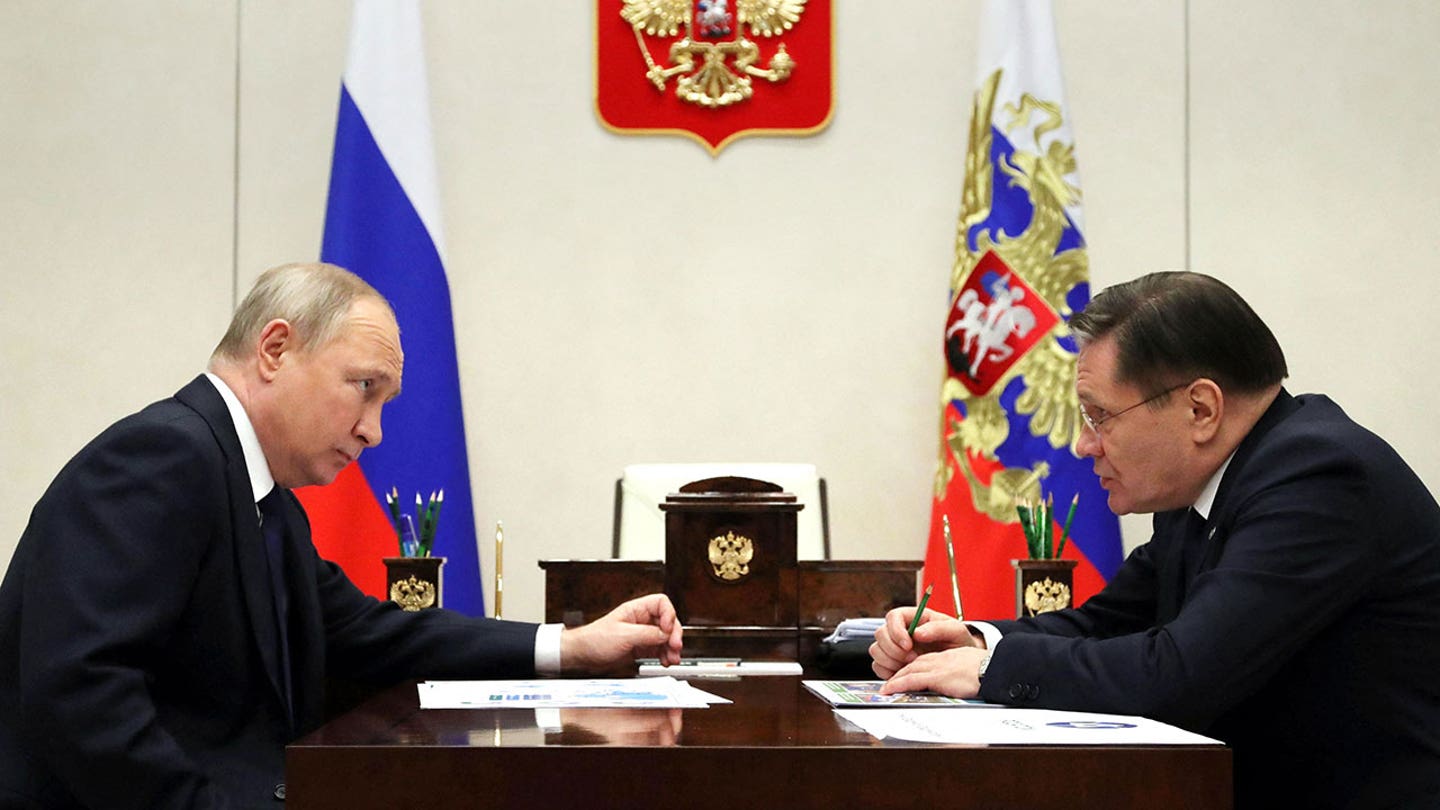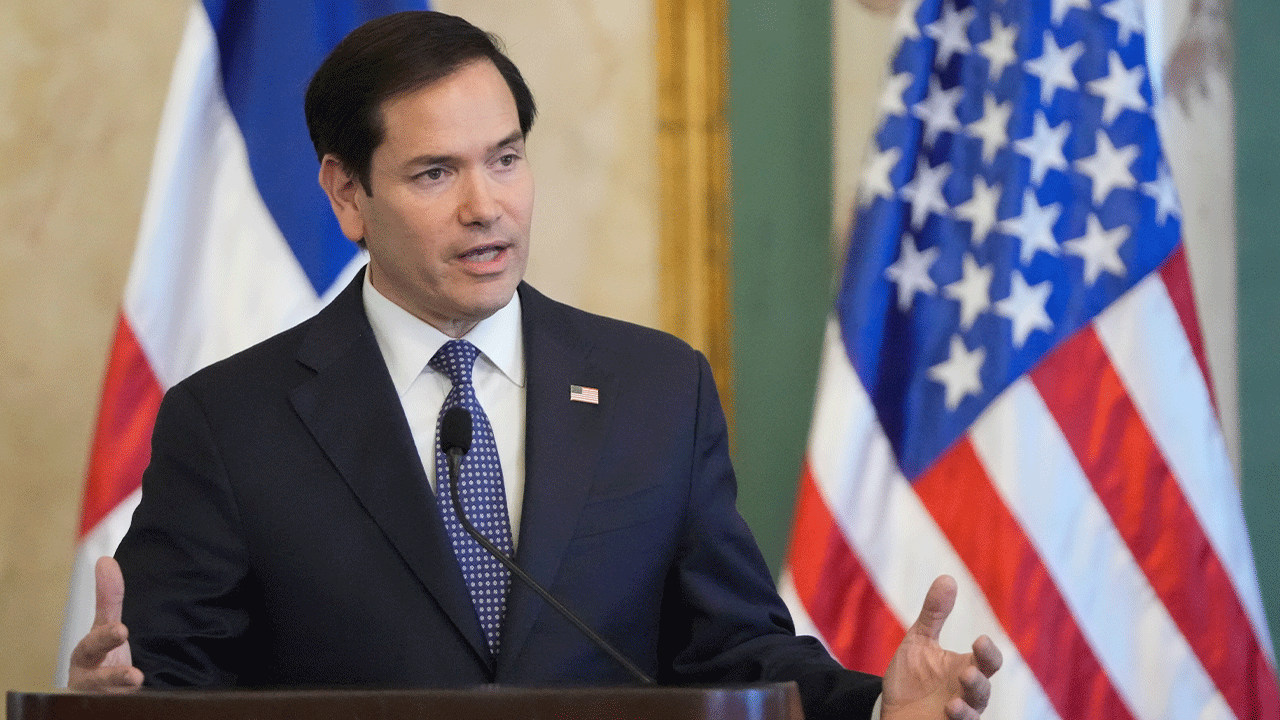
LeBron James writes op-ed for Chinese state media as NBA aims to rebuild in China
Entities mentioned:
- LeBron James: Influence, Unity, Legacy
- NBA: Competitive spirit, Influence, Recognition
- China: Power, Influence, Pride
- United States: Power, Influence, Competitive spirit
Article Assessment:
Credibility Score: 75/100
Bias Rating: 55/100 (Center)
Sentiment Score: 60/100
Authoritarianism Risk: 45/100 (Mixed/Neutral)
Bias Analysis:
The article presents a balanced view of US-China tensions and NBA's efforts in China. It includes perspectives from multiple sides without overtly favoring one narrative, maintaining a centrist approach.
Key metric: US-China Economic Relations
Let me tell you something - this story is HUGE! We're seeing a GAME-CHANGING play unfold as LeBron James, the MVP of basketball diplomacy, steps up to the free-throw line of international relations! This isn't just a layup, folks - it's a FULL COURT PRESS to rebuild the NBA's standing in China. James is showing us his championship mentality, using his star power to bridge the gap between two economic powerhouses locked in a high-stakes trade matchup. The NBA, coming off the bench after a tough foul from the Morey incident, is now making a fourth-quarter comeback that could change the whole game. I'm telling you right now, this is the kind of clutch performance that separates the contenders from the pretenders in the global arena!

US ally summons Trump ambassador over 'unacceptable' antisemitism allegations
Entities mentioned:
- Charles Kushner: Righteousness, Moral outrage, Loyalty
- France: Self-respect, Justice, Unity
- Emmanuel Macron: Duty, Justice, Security
- United States: Loyalty, Influence, Power
- Hamas: Power, Revenge, Control
- Israel: Security, Self-preservation, Justice
- Benjamin Netanyahu: Power, Security, Self-preservation
- Donald Trump: Loyalty, Power, Influence
Article Assessment:
Credibility Score: 75/100
Bias Rating: 55/100 (Center)
Sentiment Score: 30/100
Authoritarianism Risk: 35/100 (Generally Democratic)
Bias Analysis:
The article presents both US and French perspectives, quoting official statements from both sides. While it provides context about Kushner's background and Trump's support for Israel, it maintains a relatively balanced approach in reporting the diplomatic incident.
Key metric: US-France Diplomatic Relations
As a social scientist, I analyze that this incident represents a significant strain in US-France diplomatic relations. The summoning of an ambassador is a serious diplomatic action, indicating France's strong disapproval of Kushner's allegations. This conflict stems from differing perspectives on addressing antisemitism and the Israel-Palestine conflict. The US backing of Kushner's comments, despite France's objections, further complicates the situation. This disagreement could potentially impact cooperation on other international issues and weaken the transatlantic alliance. The incident also highlights the complex interplay between domestic politics, international relations, and personal connections in diplomacy, as evidenced by Kushner's familial ties to former President Trump.

Russia looks to update nuclear program amid ‘colossal threats’ from West
Entities mentioned:
- Alexei Likhachev: Security, Power, Duty
- Vladimir Putin: Power, Security, Influence
- Donald Trump: Security, Competitive spirit, Power
- Russia: Security, Power, Self-preservation
- United States: Security, Influence, Power
- China: Power, Influence, Security
Article Assessment:
Credibility Score: 75/100
Bias Rating: 55/100 (Center)
Sentiment Score: 30/100
Authoritarianism Risk: 55/100 (Mixed/Neutral)
Bias Analysis:
The article presents a relatively balanced view, incorporating perspectives from both Russian and U.S. sources. However, there's a slight lean towards Western viewpoints, particularly in framing Russia's actions as potentially threatening.
Key metric: Global Nuclear Stability Index
As a social scientist, I analyze that this article highlights a concerning trend towards nuclear armament and away from disarmament efforts. Russia's emphasis on upgrading its nuclear capabilities, coupled with similar rhetoric from the U.S., suggests a potential new arms race. This development, along with the uncertain future of the New Start Treaty, could significantly destabilize global nuclear security. The article underscores the tensions between major powers and the use of nuclear capabilities as a geopolitical tool, which may lead to increased global instability and a higher risk of nuclear conflict.

Russia says Ukrainian drones hit nuclear power plant during Independence Day strikes
Entities mentioned:
- Russia: Control, Self-preservation, Security
- Ukraine: Freedom, Self-preservation, Determination
- U.N. nuclear watchdog: Security, Duty, Professional pride
- Rafael Mariano Grossi: Security, Duty, Professional pride
- Volodymyr Zelenskyy: Unity, Determination, Security
- United States: Influence, Security, Power
Article Assessment:
Credibility Score: 65/100
Bias Rating: 55/100 (Center)
Sentiment Score: 30/100
Authoritarianism Risk: 35/100 (Generally Democratic)
Bias Analysis:
The article presents information from both Russian and Ukrainian sources, attempting to balance perspectives. However, there's slightly more detail on Ukrainian statements, possibly indicating a slight lean towards Western sources.
Key metric: International Conflict and Security
As a social scientist, I analyze that this article highlights the ongoing tensions between Russia and Ukraine, particularly on Ukraine's Independence Day. The reported drone attacks on Russian infrastructure, including a nuclear power plant, demonstrate the escalation of the conflict and its potential to affect critical facilities. This raises significant international security concerns, especially regarding nuclear safety. The contrasting narratives from Russian and Ukrainian sources about the number and effectiveness of drone attacks reflect the information warfare aspect of this conflict. President Zelenskyy's speech emphasizes Ukraine's determination for independence and international recognition, while also acknowledging the complex geopolitical dynamics involving the US and Russia. The incident underscores the volatile nature of the conflict and its potential to impact global security and diplomatic relations.

France summons US ambassador Charles Kushner over antisemitism allegations
Entities mentioned:
- France: Indignation, Justice, Moral outrage
- United States: Self-preservation, Influence, Control
- Charles Kushner: Duty, Self-preservation, Loyalty
Article Assessment:
Credibility Score: 70/100
Bias Rating: 50/100 (Center)
Sentiment Score: 35/100
Authoritarianism Risk: 30/100 (Generally Democratic)
Bias Analysis:
The article presents a factual headline without evident bias in its framing. The limited information provided maintains a neutral tone, not favoring either country's position or providing extensive context that might skew perception.
Key metric: US-France Diplomatic Relations
As a social scientist, I analyze that this incident highlights tensions in US-France relations over the sensitive issue of antisemitism. The summoning of a US ambassador is a significant diplomatic action, indicating France's serious concern about the allegations. This could potentially strain the typically strong alliance between the two nations, affecting cooperation on various international issues. The involvement of a high-profile figure like Charles Kushner adds complexity to the situation, given his connections to the previous US administration. This event may lead to increased scrutiny of both countries' approaches to combating antisemitism and could influence public opinion and policy discussions on both sides of the Atlantic.

Zelenskyy seeks 'strong reaction' from US if Putin is not ready for bilateral meeting
Entities mentioned:
- Volodymyr Zelenskyy: Determination, Justice, Self-preservation
- Vladimir Putin: Power, Control, Influence
- Donald Trump: Ambition, Recognition, Influence
- United States: Influence, Security, Unity
- Russia: Power, Control, Influence
- Ukraine: Self-preservation, Freedom, Justice
Article Assessment:
Credibility Score: 75/100
Bias Rating: 45/100 (Center)
Sentiment Score: 40/100
Authoritarianism Risk: 35/100 (Generally Democratic)
Bias Analysis:
The article presents a relatively balanced view, quoting multiple sides and sources. It leans slightly towards a Western perspective but attempts to provide context from all parties involved.
Key metric: International Diplomatic Influence
As a social scientist, I analyze that this article highlights the complex diplomatic maneuvering in the ongoing Russia-Ukraine conflict, with the United States playing a central mediating role. Zelenskyy's call for a 'strong reaction' from the US if Putin declines a bilateral meeting suggests Ukraine's reliance on US support and pressure tactics. Trump's involvement indicates the US's continued influence in international affairs, despite potential domestic controversies. The article underscores the delicate balance of power dynamics, with each leader pursuing their own agenda while navigating the constraints of international diplomacy. The emphasis on territorial concessions and security guarantees reflects the high stakes involved in any potential peace agreement, highlighting the challenges in resolving long-standing geopolitical conflicts.

White House joins TikTok after delaying enforcement of sale-or-ban law
Entities mentioned:
- White House: Influence, Recognition, Control
- TikTok: Self-preservation, Influence, Security
- Bytedance: Self-preservation, Control, Security
- Donald Trump: Power, Control, Influence
- Joe Biden: Security, Duty, Control
- United States: Security, Control, Power
- China: Power, Control, Influence
Article Assessment:
Credibility Score: 75/100
Bias Rating: 55/100 (Center)
Sentiment Score: 45/100
Authoritarianism Risk: 40/100 (Generally Democratic)
Bias Analysis:
The article presents a relatively balanced view, incorporating multiple perspectives and historical context. While it leans slightly towards emphasizing the administration's actions, it also includes background on security concerns and bipartisan support for the ban.
Key metric: US-China Relations
As a social scientist, I analyze that the White House's decision to join TikTok amidst ongoing national security concerns and pending legislation reflects a complex interplay of diplomatic, economic, and political factors. This move suggests a potential shift in the US approach to Chinese-owned technology platforms, possibly indicating a desire for engagement rather than isolation. The repeated delays in enforcing the sale-or-ban law demonstrate the administration's struggle to balance national security concerns with the app's popularity and potential diplomatic repercussions. This development could significantly impact US-China relations, as it may be interpreted as a softening stance on Chinese tech influence in the US, potentially affecting broader trade and diplomatic negotiations.

Russians made concessions ‘almost immediately,’ Trump envoy says of Putin summit
Entities mentioned:
- Donald Trump: Power, Influence, Legacy
- Vladimir Putin: Control, Power, Self-preservation
- Steve Witkoff: Loyalty, Duty, Professional pride
- Volodymyr Zelenskyy: Security, Unity, Self-preservation
- Karoline Leavitt: Duty, Loyalty, Professional pride
- United States: Influence, Power, Security
- Russia: Control, Power, Self-preservation
- Ukraine: Security, Freedom, Self-preservation
- NATO: Security, Unity, Influence
Article Assessment:
Credibility Score: 65/100
Bias Rating: 55/100 (Center)
Sentiment Score: 60/100
Authoritarianism Risk: 35/100 (Generally Democratic)
Bias Analysis:
The article presents multiple perspectives, including those of U.S., Russian, and Ukrainian officials. However, it relies heavily on statements from Trump administration officials, which may slightly skew the narrative towards a U.S.-centric view.
Key metric: International Relations and Diplomacy
As a social scientist, I analyze that this article highlights a significant shift in U.S.-Russia relations, with potential implications for global security and diplomacy. The reported concessions by Russia during the Trump-Putin summit suggest a possible de-escalation of tensions over Ukraine. However, the specifics of these concessions are not disclosed, which limits a comprehensive assessment of their impact. The focus on security guarantees for Ukraine, without U.S. troop involvement, indicates a strategic approach to maintain stability in the region while avoiding direct military confrontation. The involvement of European allies in discussions points to a multilateral effort to address the Ukraine crisis. The article also reveals the delicate balance between diplomatic negotiations and public disclosure, as evidenced by the cautious statements from U.S. officials. Overall, this development could potentially lead to a reconfiguration of power dynamics in Eastern Europe, affecting U.S. influence in the region and global perceptions of its diplomatic capabilities.

US announces more sanctions on ICC officials for targeting Americans, Israelis
Entities mentioned:
- International Criminal Court (ICC): Justice, Influence, Duty
- United States: Self-preservation, Power, Control
- Israel: Self-preservation, Security, Power
- Marco Rubio: Righteousness, Patriotism, Power
- Donald Trump: Power, Control, Influence
Article Assessment:
Credibility Score: 75/100
Bias Rating: 55/100 (Center)
Sentiment Score: 35/100
Authoritarianism Risk: 65/100 (Authoritarian Tendencies)
Bias Analysis:
The article presents both US and ICC perspectives, quoting officials from both sides. However, it gives slightly more space to the US position and reasoning behind the sanctions, suggesting a slight lean towards the US viewpoint.
Key metric: International Relations and Diplomacy
As a social scientist, I analyze that this move by the United States to sanction ICC officials significantly impacts international relations and diplomacy. The sanctions represent a strong pushback against international jurisdiction over US and Israeli nationals, potentially weakening the ICC's global influence and effectiveness. This action may strain relationships with allies, particularly those who are ICC members, and could be seen as the US prioritizing its sovereignty over international cooperation in matters of justice. The move also risks undermining the broader system of international law and could encourage other nations to similarly reject international court decisions they disagree with, potentially leading to a more fragmented global legal order.

Russian drone crashes in Polish field; Warsaw protests airspace violation and plans formal complaint
Entities mentioned:
- Russia: Power, Influence, Provocation
- Poland: Self-preservation, Security, Indignation
- Wladyslaw Kosiniak-Kamysz: Duty, Security, Wariness
- United States: Influence, Peace, Control
- European leaders: Unity, Security, Peace
- Ukraine: Self-preservation, Freedom, Justice
- Trump administration: Influence, Legacy, Power
Article Assessment:
Credibility Score: 75/100
Bias Rating: 55/100 (Center)
Sentiment Score: 30/100
Authoritarianism Risk: 35/100 (Generally Democratic)
Bias Analysis:
The article presents a relatively balanced view, including perspectives from Polish officials and local residents. However, there's a slight lean towards Western viewpoints, with more emphasis on Polish and US reactions than Russian perspectives.
Key metric: International Security and Diplomacy
As a social scientist, I analyze that this incident of a Russian drone crashing in Poland represents a significant escalation in international tensions, particularly in the context of the ongoing Ukraine-Russia conflict. The event demonstrates Russia's willingness to provoke NATO members, potentially testing the alliance's resolve and response mechanisms. This action could impact international security by increasing military alertness in Eastern Europe and potentially straining diplomatic efforts to resolve the Ukraine conflict. The incident also highlights the complex interplay between military technology, international borders, and diplomatic relations in modern warfare and peacekeeping efforts. The Trump administration's involvement in brokering talks between Russia and Ukraine adds another layer of complexity to the situation, potentially influencing the geopolitical dynamics in the region.